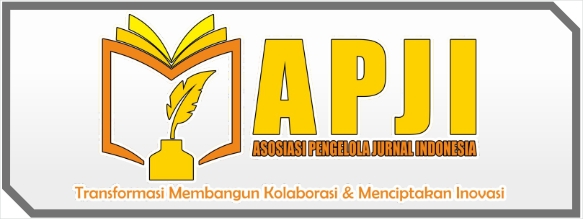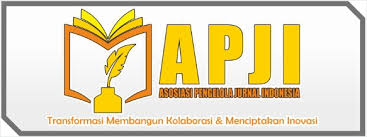Pendampingan Mahasiswa Program Studi Administrasi Publik FISIP Uncen dalam Membangun Jiwa Kepemimpinan yang Berintegritas
Mentoring Students of the Public Administration Study Program, FISIP Uncen in Building a Spirit of Leadership with Integrity
DOI:
https://doi.org/10.70610/assoeltan.v3i2.918Keywords:
Community Empowerment, Cultural Inheritance, Local Culinary, Steamed Banana SagoAbstract
One of the qualities and characteristics required in leadership is integrity. The main issue raised was the lack of awareness and consistency among students in demonstrating leadership behavior based on integrity values. This service aims to shape and strengthen integrity-based leadership among students in the Public Administration Study Program, Faculty of Social and Political Sciences, Cenderawasih University, by viewing students as agents of change and aspiring leaders. The method used was Participatory Action Research (PAR), which included interactive lectures, discussions (FGDs), and question-and-answer sessions delivered to fourth and sixth semester students. Evaluations were conducted before and after the activity to measure the increase in students' knowledge and understanding of integrity-based leadership. The results of this community service activity showed high student enthusiasm for the material, as well as an increase in conceptual understanding of the importance of values- and character-based leadership. The discussion also revealed that the lack of participation in student organizations was due to a lack of guidance and supporting facilities. Supporting factors for this activity included students' awareness of the importance of their role as aspiring leaders and the availability of curriculum support. Conversely, inhibiting factors included low participation in organizations and limited extracurricular activities. This activity emphasized that leadership is not an innate trait, but rather a skill that must be developed through learning and internalization of values. Recommendations provided include the need for further training and institutional support in the form of funding and facilities for student organizations.
References
Abu Akel, S. A., & Ibrahim, M. (2023). The Effect of Relative Advantage, Top Management Support and IT Infrastructure on E-Filing Adoption. Journal of Risk and Financial Management, 16(6), 295.
Ardana, I. K., Mujiati, N. W., & Sriathi, A. A. A. (2008). Perilaku keorganisasian. Yogyakarta: Graha Ilmu.
Abdullah, B. (2006). Budaya kerja perbankan (Cet. ke-1). Jakarta: LP3ES.
Danim, S. (2004). Motivasi kepemimpinan & efektivitas kelompok. Jakarta: PT Rineka Cipta.
Edy, S. (2016). Manajemen sumber daya manusia. Jakarta: Kencana Prenada Media Group.
Wahyudi, I. (2012). Pengembangan pendidikan: Strategi inovatif & kreatif dalam mengelola pendidikan secara komprehensif. Jakarta: PT Prestasi Pustakarya.
Kartono, K. (2003). Pemimpin dan kepemimpinan: Apakah kepemimpinan abnormal itu? Jakarta: PT Raja Grafindo Persada.
Thoha, M. (2010). Kepemimpinan dalam manajemen. Jakarta: PT Raja Grafindo Persada.
Lee, R., Hoe Looi, K., Faulkner, M., & Neale, L. (2021). The moderating influence of environment factors in an extended community of inquiry model of e-learning. Asia Pacific Journal of Education, 41(1). https://doi.org/10.1080/02188791.2020.1758032
Litamahuputty, J. V. (2022). The Urgency Of Financial Literacy Education From Early: A Theoretical Approach. Jurnal Pendidikan Dan Konseling (JPDK), 4(6), 12867–12869.
Litamahuputty, J. V., Siahaya, A., & Cornelis, V. (2024). The Role of Financial Literacy as A Moderating Variable in the Impact of Fintech Payments on Consumer Behavior. JHSS (JOURNAL OF HUMANITIES AND SOCIAL STUDIES), 8(1), 184–188.
Matli, W., & Ngoepe, M. (2020). Capitalizing on digital literacy skills for capacity development of people who are not in education, employment or training in South Africa. African Journal of Science, Technology, Innovation and Development, 12(2), 129–139.
Miliyanti, N., Rinaldy, R., & Alghifari, R. (2022). Application of Participatory Rural Appraisal (PRA) Techniques in Waste Problems in Sukamanis Village Kadudampit District. Jurnal Pengabdian Masyarakat Bestari, 1(9). https://doi.org/10.55927/jpmb.v1i9.2111
Motsumi, M. J., Mashalla, Y., Sebego, M., Ho-Foster, A., Motshome, P., Mokokwe, L., Mmalane, M., & Montshiwa, T. (2020). Developing a trauma registry in a middle-income country – Botswana. African Journal of Emergency Medicine, 10. https://doi.org/10.1016/j.afjem.2020.06.011
Nabilah Mokhtar, Lim Zhi Xuan, Lokman, H. F., & Noor Hayati Che Mat, N. H. C. M. (2023). Theory, Literature Review, and Fun Learning Method Effectiveness in Teaching and Learning. International Journal of Social Science and Education Research Studies, 03(08), 1738–1744. https://doi.org/10.55677/ijssers/v03i8y2023-30
Nugraha, A. P., Wibisono, C., Satriawan, B., Indrayani, Mulyadi, & Damsar. (2022). The Influence Of Transformational Leadership, Job Crafting, Job Satisfaction, And Self-Efficacy On Job Performance Through Work Engagement Of State Civil Apparatus As An Intervening Variable In The Digital Era Of Cases In The Local Government Of Karimun R. Central European Management Journal, 30(3), 2336–2693.
Nugroho, A. P., Asfahani, A., Sugiarto, F., Sufyati, H. S., & Setiono, A. (2023). Community Assistance in Utilizing Sharia-Based Digital Banking. Amalee: Indonesian Journal of Community Research and Engagement, 4(2), 519–530.
O’Meara, K., & Jaeger, A. J. (2019). Preparing future faculty for community engagement: Barriers, facilitators, models, and recommendations. Building the Field of Higher Education Engagement, 111–131.
Omondi, R. I., & Jagongo, A. (2018). Microfinance services and financial performance of small and medium enterprises of youth SMEs in Kisumu County, Kenya. International Academic Journal of Economics and Finance, 3(1), 24–43.
Podolsky, A., Kini, T., & Darling-Hammond, L. (2019). Does teaching experience increase teacher effectiveness? A review of US research. Journal of Professional Capital and Community, 4(4), 286–308.
Prabowo, P. A., Supriyono, B., Noor, I., & Muluk, M. K. (2021). Special autonomy policy evaluation to improve community welfare in Papua province Indonesia. International Journal of Excellence in Government, 2(1), 24–40. https://doi.org/10.1108/ijeg-06-2019-0011
Downloads
Published
How to Cite
Issue
Section
License
Copyright (c) 2025 Assoeltan: Indonesian Journal of Community Research and Engagement

This work is licensed under a Creative Commons Attribution-ShareAlike 4.0 International License.
License: CC BY-SA 4.0 (Creative Commons Attribution-ShareAlike 4.0 International License)












